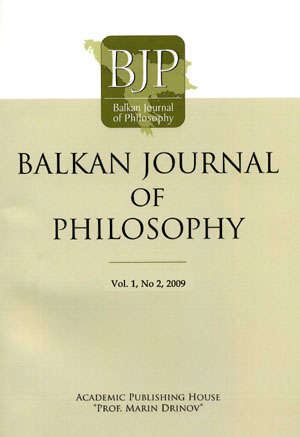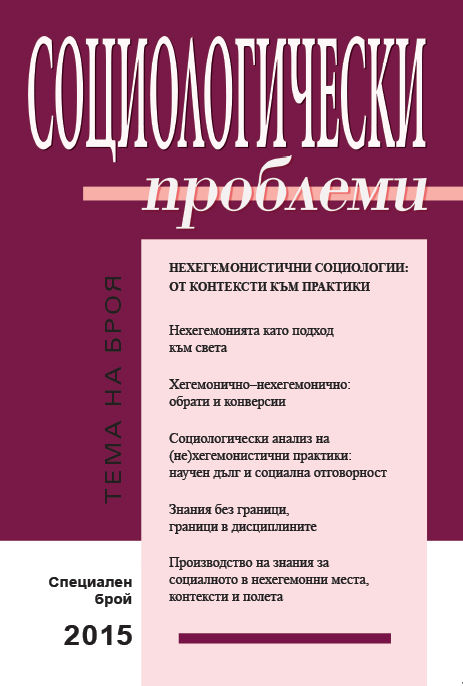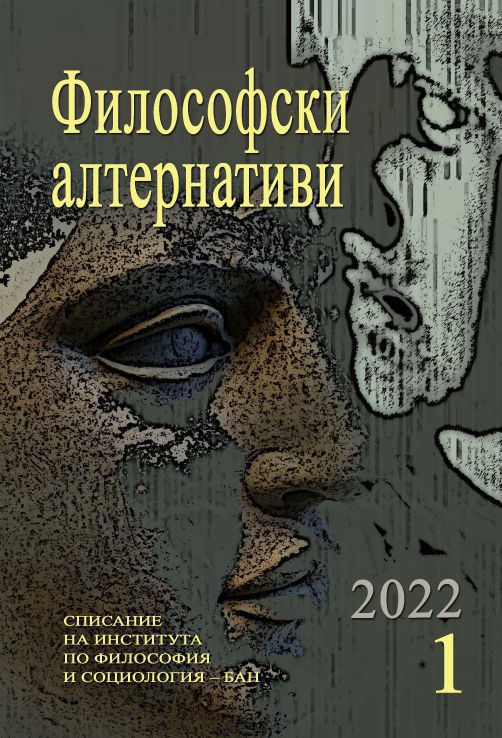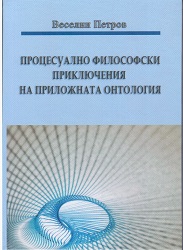Философски алтернативи
Frequency: 6 issues / Country: Bulgaria
The journal Philosophical Alternatives (1992 – ), ISSN 0861-7899, is founded in 1945 under the name of Philosophical Thought. The Philosophical Alternatives is a peer-reviewed journal edited by the Institute for the Study of Societies and Knowledge at the Bulgarian Academy of Sciences. We invite contributions that address the following fields: Ontology, Epistemology, Philosophy of Science, History of Philosophy, Philosophical Anthropology, Philosophy of History, Ethics, Aesthetics, Logic, Political Science, Psychology, Sociology. We also publish book reviews. The journal Philosophical Alternatives is published six times per year: February, April, June, August, October, and December. Copyright: All rights reserved; no part of this publication may be reproduced, stored in a retrieval system, or transmitted in any form or by any means without prior written permission of the Publisher. It is a condition of publication in the Journal that authors assign copyright to Philosophical Alternatives. Indexing/Abstracting Services: Articles in the Journal are abstracted /indexed in The Philosopher’s Index, EBSCOhost, Central and Eastern European On-line Library (www.ceeol.com). Further information regarding the journal can be obtained from the ISSK home page http://issk-bas.org Editorial Board Nikolay Mihaylov /Editor in Chief/, Valeri Lichev /Deputy Editor-in-Chief/, Galin Penev /Scientific Secretary/, Doroteya Angelova, Sylvia Borissova, Ani Dimitrova, Aleksandar Donev, Kristiyan Enchev, Aleksandar Gungov, Stoyan Stavru, Ivanka Stapova; International Advisory Board Rossen Dandoloff /France/, Mafalda Eiró-Gomes /Portugal/, Valentin Goranko /Sweden/, Axel Honneth /Germany/, Christopher Hookway /Great Britain/, Ginny Whitehouse /USA/, Malek Hosseini /Iran/, Nathan Houser /Canada, USA/, Nikolay Milkov /Germany/, Marcin Miłkowski /Poland/, Alexander Neklessa /Russia/, Veselin Petkov /Canada/, Vit Punčochář /Czech Republic/, Ana Raposo /Portugal/, Rudolf Siebert /USA/, Richard Tempest /USA/; Tatyana Batuleva, Nina Dimitrova, Valentin Kanawrow, Ivan Kolev, Stefan Penov, Anguel S. Stefanov /Bulgaria/
More...




